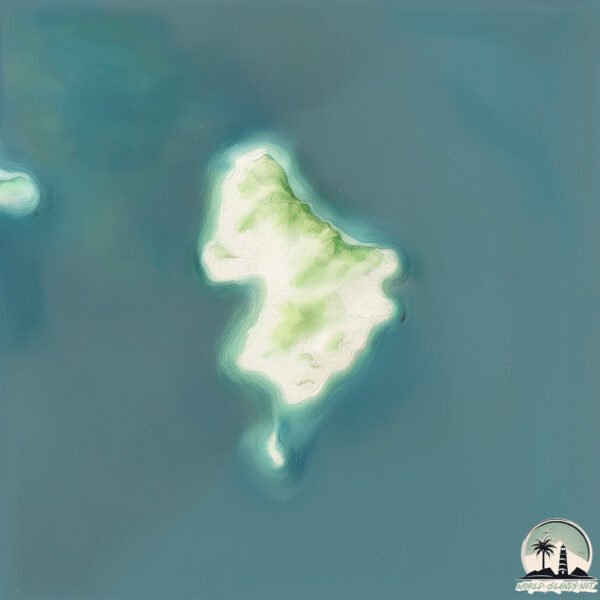San Benito Este

Welcome to San Benito Este, a Dry island in the North Pacific Ocean, part of the majestic Pacific Ocean. This guide offers a comprehensive overview of what makes San Benito Este unique – from its geography and climate to its population, infrastructure, and beyond. Dive into the details:
- Geography and Size: Explore the island’s size and location.
- Climate and Weather: Weather patterns and temperature.
- Topography and Nature: Uncover the natural wonders of the island.
- Infrastructure and Travelling: Insights on reaching, staying, and making the most of your visit.
- News and Headlines: Latest News.
Geography and size of San Benito Este
Size: 1.557 km²
Coastline: 7.6 km
Ocean: Pacific Ocean
Sea: North Pacific Ocean
Continent: North America
San Benito Este is a Small Island spanning 1.6 km² with a coastline of 7.6 km.
Archipel: –
Tectonic Plate: North America – Covers North America and parts of the Atlantic and Arctic Oceans, characterized by diverse geological features and varying levels of seismic activity.
The geographic heart of the island is pinpointed at these coordinates:
Latitude: 28.30237628 / Longitude: -115.54373763
Climate and weather of San Benito Este
Climate Zone: Dry
Climate Details: Cold Desert Climate
Temperature: Cold
Climate Characteristics: Similar in dryness to hot deserts but with cold winters. Days can be warm or hot, while nights are typically chilly with common frost occurrences.
Topography and nature of San Benito Este
Timezone: UTC-07:00
Timezone places: America/Denver
Max. Elevation: 37 m
Mean Elevation: 12 m
Vegetation: Shrubland
Tree Coverage: 14%
The mean elevation is 12 m. The highest elevation on the island reaches approximately 37 meters above sea level. The island is characterized by Plains: Flat, low-lying lands characterized by a maximum elevation of up to 200 meters. On islands, plains are typically coastal lowlands or central flat areas.
Dominating Vegetation: Shrubland
Dominated by shrubs and small bushes, these areas are typical in dry, rocky, or sandy environments, as well as in regions with poor soil fertility. San Benito Este has a tree cover of 14 %.
Vegetation: 4 vegetation zones – Diverse Island
Four distinct vegetation zones mark these islands as ecologically diverse. They might feature varied landscapes such as forests, beaches, grasslands, and rocky areas. Such diversity reflects the island’s complex ecological interactions and varied habitats, which can support a rich array of wildlife and plant species.
Infrastructure and Travelling to San Benito Este
Does the island have a public airport? no.
There is no public and scheduled airport on San Benito Este. The nearest airport is Guerrero Negro Airport, located 171 km away.
Does the island have a major port? no.
There are no major ports on San Benito Este. The closest major port is PUERTO MORRO REDONDO, approximately 48 km away.
The mean population of San Benito Este is 0 per km². San Benito Este is Uninhabited. The island belongs to Mexico.
Continuing your journey, Cedros is the next notable island, situated merely km away.
Natural Wonders: San Benito Island Oeste



Mexico is classified as Emerging region: MIKT: Mexico, Indonesia, South Korea, and Turkey – Economies recognized for their development potential and emerging market status. The level of income is Upper middle income.
News – Latest Updates and Headlines from San Benito Este
Stay informed with the most recent news and important headlines from San Benito Este. Here’s a roundup of the latest developments.
Please note: The data used here has been primarily extracted from satellite readings. Deviations from exact values may occur, particularly regarding the height of elevations and population density. Land area and coastline measurements refer to average values at mean high tide.
